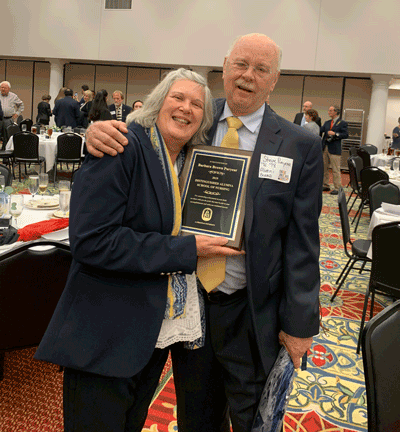1657Views
Holmes first JUCO in nation to offer Applied Behavior Analysis course
Beginning in March of 2018, Holmes Community College will be the first community college in the nation to offer PSY 2543 – Applied Behavior Analysis (ABA). This is an online course that counts toward the 40 hours of training needed to apply for the Registered Behavior Technician (RBT) credential.
An RBT is a paraprofessional who is primarily responsible for the direct implementation of behavior-analytic services. The services they provide are prescribed and monitored by a supervising Board Certified Behavior Analyst (BCBA). RBTs meet directly with clients and work in a variety of settings, including behavioral health clinics, schools and development centers.
"Autism spectrum disorder affects thousands of our state's children every year," said Mississippi Secretary of State Delbert Hosemann, an advocate for ABA. "For the first time in Mississippi's history, for the first time in our country, the Mississippi Virtual Community College System, through Holmes Community College, will offer an Applied Behavior Analysis course.
This is an entry-level course towards a career pathway. After successful completion of this course, students are eligible for a national standardized test to become an RBT; a meaningful job towards a long-term, rewarding career. The needs are vast in Mississippi for children on the autism spectrum. Our state needs bright, caring, young people to contribute to our workforce while they're helping our children." Pathway to a new career
According to Neelima G. Duncan, Ph.D., BCBA-D, the director of Blue Sky Behavior Therapy, there is a strong need for RBTs right now in the state of Mississippi.
"Right now, we're having a hard time finding RBTs," Dr. Duncan said. "There are more (behavioral health) agencies that are sprouting up and there are more people, more providers who need these services. The RBTS are the ones parents and clients see on a day-to-day basis; they are the ones that hit the ground running with the strategies that we put in place. We need RBTs, who are under our supervision, to be able to provide those services for a wide range of kids.
Also, concepts learned in an RBT course can be applied to a variety of things; it doesn't have to be applied to only working with a child with autism," Dr. Duncan said. "If you're wanting to go into the behavioral sciences field or even teaching, this is an excellent course to get the basics on how to deal with different behaviors you might come across."
The ABA class teaches application of principles of applied behavior analysis to problems involving human behavior change. Students must take Psychology (PSY) 1513 as a prerequisite for the course and will earn three hours credit upon completion. Even students who are not necessarily looking to earn the RBT credential may take the course as an academic elective.
Tina Garrett, psychology instructor and chair for the department of social and behavioral science, stresses that this course will not only benefit students majoring in psychology, but also students majoring in nursing, education, criminal justice or any field that involves working with people on a daily basis.
"Successful completion of this course is more than just three hours of college credit," Garrett said. "It's an opportunity to gain training that will qualify the student to go directly into the workforce."
Class offerings
For now, the class will only be offered during the second 8-week term of the spring semester, which runs from March 12 through May 4.
"Holmes is excited that we have the opportunity to be a part of this endeavor where students can take the Applied Behavior Analysis course and learn valuable information that will help them in their lives as well as their careers," said Vice President for Academic Programs Dr. Fran Cox. "This course will also serve to meet one of the requirements to become a RBT and there is a definite need within our state for training to serve this population and to make a difference in people's lives."
Krystal Berry, the parent of an 8-year-old little boy who was diagnosed with autism, is one such mother whose life has been changed by RBTs.
"The greatest thing that RBTs and applied behavioral analysis in general has done for our family is it has actually taught me how to work with my son," Berry said. "Understanding how to work with my son from a totally different perspective has transformed our family life."
The RBT credential is one of four levels of certification that can be achieved in the field of behavioral analysis. Kyle Rowsey, a BCBA and psychology professor at the University of Southern Mississippi, reiterates how useful ABA courses are even for those who are not necessarily seeking a profession in the field.
"Any profession where you work with humans, where you work with people and deal with behavior, it's very useful to know why behavior occurs and understand some of those principles and how you can help guide behavior," Rowsey said.
To become an RBT, applicants must adhere to the following guidelines: Be at least 18 years of age Possess a minimum of a high school diploma or national equivalent Pass a criminal background check Complete 40 hours of training (which the PSY 2543 ABA class will satisfy) Pass the RBT Competency Assessment Pass the RBT exam
For more information about the PSY 2543 – Applied Behavior Analysis (ABA) class, call (662) 472-9146 or (662) 472-9035.
For more information about Holmes eLearning, visit http://holmescc.edu/elearning/.
IN THE PHOTO: Kyle Rowsey, a BCBA and psychology professor at the University of Southern Mississippi. IN MISSISSIPPI NEWS


